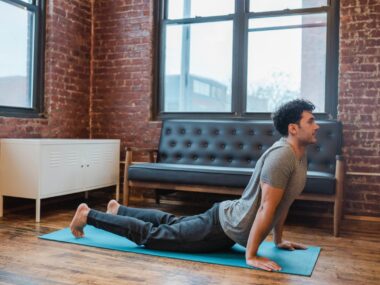In the hustle and bustle of modern life, it’s easy to overlook the importance of mental wellbeing. Stress, anxiety, and overwhelm can take a toll on our minds and bodies, affecting our overall quality of life. However, incorporating fitness into your routine can be a powerful tool for managing stress and promoting mental wellbeing. In this guide, we’ll explore how physical activity can help you de-stress, recharge, and cultivate a positive mindset.

1. The Mind-Body Connection
Physical activity isn’t just beneficial for your body—it also has a profound impact on your mental health. Exercise stimulates the release of endorphins, neurotransmitters in the brain that act as natural mood lifters. Additionally, physical activity reduces levels of stress hormones like cortisol, helping to alleviate feelings of tension and anxiety. By nurturing the mind-body connection, fitness can serve as a powerful tool for promoting mental wellbeing.
2. Stress Reduction Strategies
When it comes to managing stress, regular exercise can be one of your most effective allies. Here are some stress reduction strategies to incorporate into your fitness routine:
- Mindful Movement: Engage in activities that promote mindfulness, such as yoga, tai chi, or qigong. These practices emphasize slow, deliberate movements and focused breathing, helping to calm the mind and reduce stress.
- Cardiovascular Exercise: Activities like running, cycling, or swimming that get your heart pumping can help release pent-up tension and boost your mood. Aim for at least 30 minutes of moderate-intensity cardio most days of the week to reap the full stress-reducing benefits.
- Strength Training: Lifting weights or performing bodyweight exercises not only strengthens your muscles but also your resilience to stress. Regular strength training workouts can help build confidence, improve self-esteem, and enhance your ability to cope with life’s challenges.
- Nature Walks: Spending time outdoors in nature has been shown to have a calming effect on the mind. Take advantage of local parks, trails, or green spaces for your workouts whenever possible, and soak in the sights, sounds, and smells of the natural world.
3. Mindful Movement Practices
In addition to traditional forms of exercise, incorporating mindful movement practices into your routine can further enhance your mental wellbeing. Here are some examples to try:
- Breathwork: Practice deep breathing exercises to promote relaxation and reduce stress. Try inhaling deeply through your nose for a count of four, holding for a count of four, and exhaling slowly through your mouth for a count of eight. Repeat this pattern several times to calm your nervous system and center your mind.
- Meditation: Set aside time each day for meditation or mindfulness practice. Find a quiet, comfortable space where you can sit or lie down undisturbed, and focus your attention on your breath, bodily sensations, or a guided meditation recording. Even just a few minutes of meditation can help quiet the chatter of the mind and cultivate a sense of inner peace.
- Body Scan: Conduct a body scan meditation to release tension and promote relaxation throughout your body. Start at your toes and work your way up to your head, paying attention to any areas of tightness or discomfort. With each breath, imagine sending warmth and relaxation to those areas, allowing them to soften and unwind.
4. Social Connection and Support
Exercise doesn’t have to be a solitary activity—building social connections through fitness can further enhance your mental wellbeing. Consider joining a group fitness class, sports team, or running club to connect with like-minded individuals and foster a sense of community. Not only will you benefit from the social support, but you’ll also enjoy the added motivation and accountability that comes from exercising with others.
5. Self-Care and Recovery
Finally, don’t forget the importance of self-care and recovery in your fitness routine. Rest and relaxation are essential for maintaining optimal mental and physical health, so be sure to prioritize activities that help you recharge and rejuvenate. Whether it’s taking a hot bath, practicing gentle stretching, or getting a massage, find ways to pamper yourself and unwind after a challenging workout.
Conclusion
Incorporating fitness into your routine isn’t just about sculpting your body—it’s also about nourishing your mind and spirit. By prioritizing activities that promote stress reduction, mindful movement, social connection, and self-care, you can harness the power of fitness to enhance your mental wellbeing and cultivate a more balanced and fulfilling life. So lace up your sneakers, roll out your yoga mat, and get ready to de-stress, recharge, and thrive with the transformative power of exercise. Your mind and body will thank you for it!










